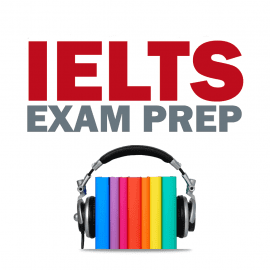
What is IELTS?
IELTS stands for the International English Language Testing System.
The IELTS exam is now taken by over 2.5 million people every year. It is recognised by universities, companies, professional bodies such as the GMC and NMC, immigration authorities, and government institutions all around the world as a measure of English Language ability.
- The IELTS Exam Format:
There are two different types of IELTS exam :
- The Academic Module: The IELTS Academic module is designed for students who wish to study in English speaking universities at either degree level or postgraduate masters or PhD level. It is also taken by those wishing to work in specific professions, such as medicine or dentistry.
- The General Training Module: The IELTS General Training module is for those hoping to migrate to the UK, Australia, New Zealand or Canada, or for those hoping to study in an English speaking country below degree level.
For both modules, there are four parts: reading, writing, listening and speaking. The reading and writing sections are different for the two modules, whereas the listening and speaking sections are the same.
- IELTS Reading : (60 minutes)
- IELTS Academic module: there are three long texts on a variety of academic subjects. They are authentic and taken from newspapers, journals, and so on. They may be factual, analytical or opinion-based.
- IELTS General Training module: there are a series of shorter, more factual texts related to living and working in an English speaking country and one longer, more complex text of general interest. They are also authentic texts and taken from notices, documents, magazines, etc.
In both modules, candidates have to identify key points, important information, understand meaning, recognize the writer’s opinion, and summarise arguments effectively.
- IELTS Writing : (60 minutes)
- IELTS Academic module: candidates must write two texts. The first piece of writing is a report on some data, such as statistical tables or graphs. The second piece is an essay, in which candidates must respond to an opinion or statement about a particular topic.
- IELTS General Training module: test-takers must also write two texts. The first is a letter written in response to a specific situation. The second is an essay responding to an opinion of statement. The writing here can be more informal than in the Academic module.
Candidates are marked on a range of criteria. These include whether they have answered the question set, used an appropriate style of language, and organised their thoughts clearly. They will also be marked on grammatical accuracy, range of vocabulary, and their ability to connect ideas, sentences, and paragraphs correctly.
- IELTS Listening : (30 minutes)
There are four texts, two of them set in a social context, and two in a more educational or academic context. The texts may be conversations, discussions or a monologue. There will be a variety of accents used by the different speakers.
Test-takers will need to listen for specific information, understand the main gist, and understand speakers’ opinions and attitudes. There will be a variety of different types of question to answer.
- IELTS Speaking : (11-14 minutes)
This is a face-to-face speaking test with an IELTS examiner. There are 3 parts to the test. The first is an introductory conversation; in the second, the candidate is given 1 minute to prepare a short presentation on a topic; in the third, the examiner and the candidate will discuss some questions connected with the topic in part 2.
Candidates are marked on their ability to express themselves clearly and accurately, their ability to answer questions appropriately, their range of grammar and vocabulary, their level of ‘naturalness’, and their pronunciation and intonation.
The IELTS Speaking Test may take place on a different day to the other parts of the exam.
- IELTS Scores:
There is no pass or fail for the IELTS exam. Instead, you receive a band score between 1 and 9. This may include a half point, such as 6.5 for example.
Most universities typically require a score of between 6 and 7. Some may also demand a minimum score in each of the four sections.
- IELTS Preparation length and Fees :
| Course length | Price |
| 36 hours | 300 TND |
- Re-taking an IELTS tests :
If you did not achieve the score you required, then you can re-take a test as soon as you feel ready to do so. You can take as many tests as you like.
IELTS was created by and is jointly owned by the British Council, the University of Cambridge ESOL Examinations, and IDP: IELTS Australia.
